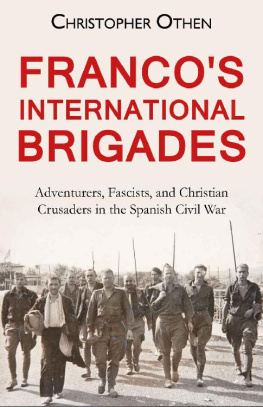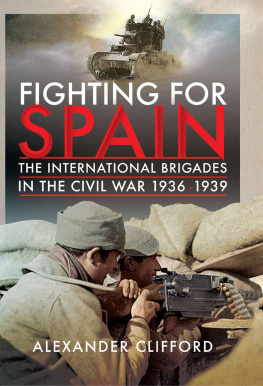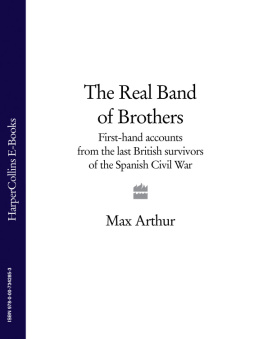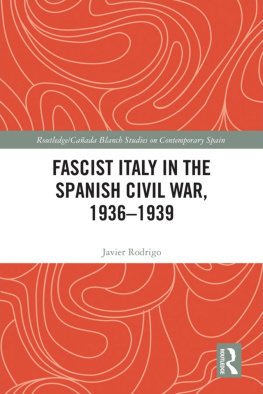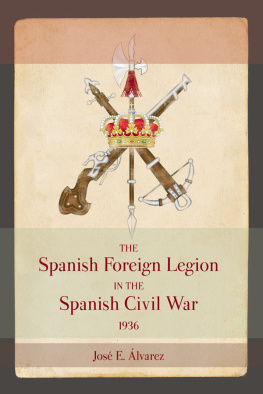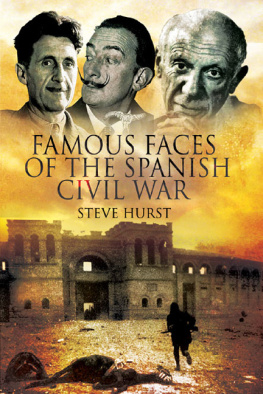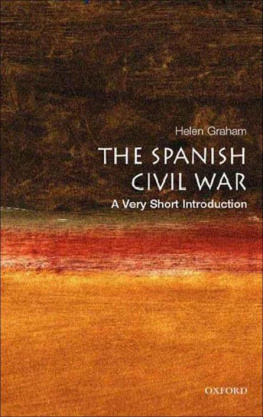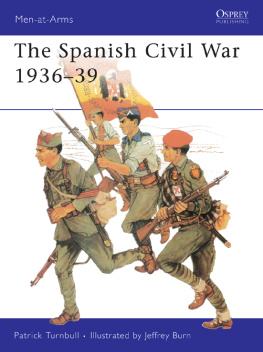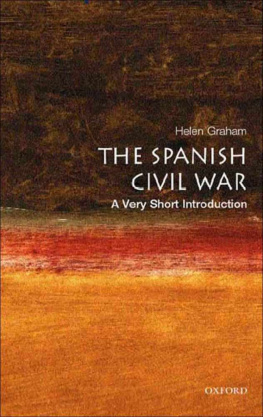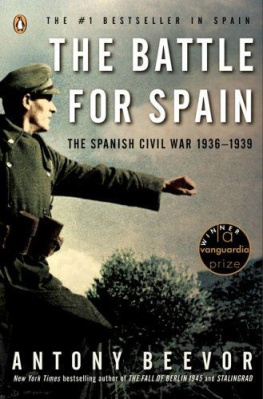Christopher Othen - Francos International Brigades: Adventurers, Fascists, and Christian Crusaders in the Spanish Civil War
Here you can read online Christopher Othen - Francos International Brigades: Adventurers, Fascists, and Christian Crusaders in the Spanish Civil War full text of the book (entire story) in english for free. Download pdf and epub, get meaning, cover and reviews about this ebook. year: 2015, publisher: Thistle Publishing, genre: Politics. Description of the work, (preface) as well as reviews are available. Best literature library LitArk.com created for fans of good reading and offers a wide selection of genres:
Romance novel
Science fiction
Adventure
Detective
Science
History
Home and family
Prose
Art
Politics
Computer
Non-fiction
Religion
Business
Children
Humor
Choose a favorite category and find really read worthwhile books. Enjoy immersion in the world of imagination, feel the emotions of the characters or learn something new for yourself, make an fascinating discovery.
- Book:Francos International Brigades: Adventurers, Fascists, and Christian Crusaders in the Spanish Civil War
- Author:
- Publisher:Thistle Publishing
- Genre:
- Year:2015
- Rating:4 / 5
- Favourites:Add to favourites
- Your mark:
Francos International Brigades: Adventurers, Fascists, and Christian Crusaders in the Spanish Civil War: summary, description and annotation
We offer to read an annotation, description, summary or preface (depends on what the author of the book "Francos International Brigades: Adventurers, Fascists, and Christian Crusaders in the Spanish Civil War" wrote himself). If you haven't found the necessary information about the book — write in the comments, we will try to find it.
The Irish Times (Book of the Day)
Othen is a clear and thoughtful guide to this odd aspect of the war and commendably avoids editorialising.
The Tablet
This well written book tells the story of the foreign troops who fought on Francos side in the Spanish Civil War. The books tone is generally sober and non-partisan.
The Volunteer
The Spanish Civil War set brother against brother when centuries of grievances erupted into a bloody settling of accounts in 1936. The conflict quickly turned international. The left-wing volunteers who came from around the world to fight for the Spanish government are well known. But Spain also attracted thousands of right-wingers from Europe and beyond, including crusading Catholics, fascist fanatics, and Muslims with a grudge. They played a vital role helping General Francisco Franco and his rebels overthrow Spanish democracy.
These foreign adventurers were on the winning side, but their role has remained strangely hidden until now. Men from Portugal and Morocco signed on for money and adventure. General Eoin ODuffy organised 700 Irishmen in a modern Crusade; 500 Frenchmen fought in the Jeanne DArc unit; and thirty British volunteers, including aristocrats and working-class fascists, also took up arms. Romanian Iron Guard extremists died at Majadahonda and an Indian volunteer fought in the fascist militia. There were Russians, Americans, Finns, Belgians, Greeks, Cubans, and many more. Goose-stepping alongside the volunteers were fascist conscripts from Germany and Italy, in training for the next world war.
It was a vicious conflict. Englishman Peter Kemp fought against British communists in a drive the Mediterranean. After the war he asked a surviving opponent what would have happened if he had been captured - Wed have shot you, came the reply, sorry. - Kemp assured him he would have done the same if the positions had been reversed.
In Francos International Brigades, Christopher Othen offers a serious and timely corrective to the historiography of Europes last major conflict before the Second World War [...] An engaging book to read.
Michigan War Studies Review
Its subtitle says it all Adventurers, Fascists, and Christian Crusaders in the Spanish Civil War. White Russians, British conservatives, Romanian fascists and countless individuals looking for the thrills of combat were among them. Christopher Othen uncovers their history in a highly readable, often entertaining manner.
The Budapest Times
An entertaining read which draws on many hitherto unexplored books, newspaper articles and personal sources, Francos International Brigades offers an intriguing insight into a ragbag of extreme right-wingers, adventurers and misfits.
Michael Alpert, author of A New International History of the Spanish Civil War
Christopher Othen: author's other books
Who wrote Francos International Brigades: Adventurers, Fascists, and Christian Crusaders in the Spanish Civil War? Find out the surname, the name of the author of the book and a list of all author's works by series.

